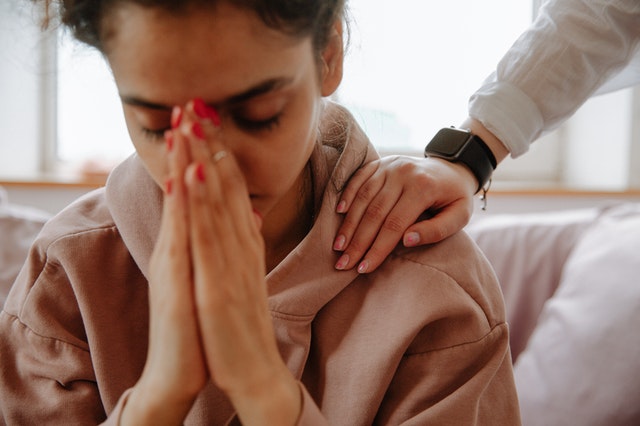According to Gallup’s research the only people whose mental health increased from 2019 to 2020 are those who attend church every week. Other than those people, mental health reached a twenty-year low in 2020. No one was surprised. 2020 was filled with news and moments that angered, scared, and frustrated people. We dealt with those moments while also having some of the predictors for strong mental health missing from our lives.
In the midst of a global pandemic several predictors of strong mental health were removed from us: exercise, community, and meaningful work. Gyms were closed, people were told to isolate from one another, and work was altered for many with the changes ranging from job loss to remote work. For decades doctors, researches, and counselors told us the importance of these disciplines on our mental health. When they were ripped from us, how could we not expect that mental health would sharply decline?
This has been a season of being overwhelmed for many people, including leaders who wrestle with how to serve their ministries and organizations well in the midst of such differing viewpoints on a plethora of issues.
I am thankful for close friends who have encouraged me to not passively watch myself experience being overwhelmed but to play offense for my own soul so that I can be as healthy as possible for my family and the people I serve. The same predictors of strong mental health that were removed from us can and should be used to wisely care for oneself in the midst of being overwhelmed.
1. Exercise: Move your body.
I have made the mistake of lessening my exercise when I feel overwhelmed, thinking that if I spent more time thinking on a particular issue that I would be less overwhelmed. Big mistake. According to the research-based book Spark, consistent exercise is like medication for your brain. More than I exercise for my body, I exercise for my mind.
2. Community: Be with others who care for you.
“I feel like I am seeing my son come alive again.” “Thank you for having groups for teenagers. My daughter is finally returning to herself.” These comments came from parents of high school students when we launched student groups in the midst of COVID. Isolation damages us. This is not just for high school students, but for all of us – leaders included. An isolated leader is a leader with an injured soul. In the last year, I have spent a few days with other ministry leaders I love and respect, good friends I cherish, and God has used each time to refresh me and encourage me.
3. Work: Do all for the glory of God.
In his book, Lost Connections, Johann Hari cites research that indicates jobs with high-expectations don’t cause the most stress; jobs without meaning cause the most stress. Good news for the Christian: work can be meaningful because of who we ultimately work for.
4. Rest: Find your rhythm of rest.
Some really great personal rhythms of rest were deeply disrupted in my life in 2020, as was the case for many of us. One example: Kaye and I would spend hours together on Fridays while the kids were in school. We would walk, have lunch together, take a nap, and pick the kids up from school. Was awesome. And then schools were closed and we lost that day. The effect of losing that day was not felt immediately, but it compounded. When we realized it, we had to quickly establish some new rhythms of rest.
The list is not exhaustive. Counseling and therapy are also really helpful and good. But these four predictors were deeply altered for many of us in the last year, and these four have been routinely recognized as important to our mental health. We need these more, not less, when we are in seasons of being overwhelmed.






